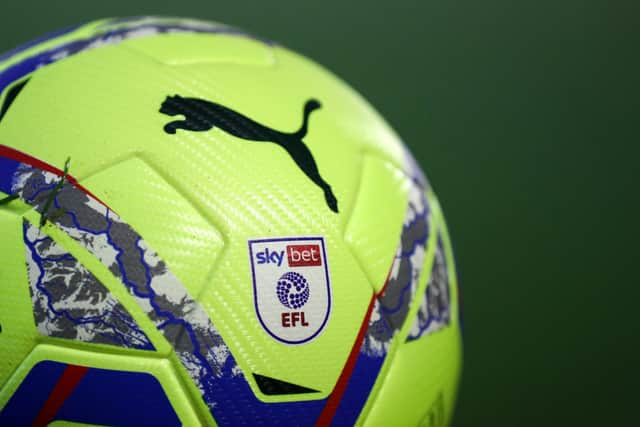All you need to know about SCMP - Which leagues does it cover? Is it similar to Financial Fair Play? What is the punishment for breaching it?
and live on Freeview channel 276
In a statement issued in response to the post, the club said: “The first [claim] that should be addressed is that the club has broken Financial Fair Play (FFP) rules and is set to receive a points deduction from the EFL. This is simply not true. Ownership is sufficiently funded and since the group took control of the club in April 2022, they have worked closely with the English Football League to ensure that all Salary Cost Management Protocols (SCMP) have been met.”
But what is SCMP? Here we take a lot at what it means, which divisions it covers, why it was introduced, the punishment for breaching the rule, and which clubs have been punished in the past.
What is SCMP and which divisions does it cover?


Advertisement
Hide AdAdvertisement
Hide AdWhile Championship clubs have adhered to FFP rules since the 2014/15 season, League One and Two clubs must comply with SCMP rules.
Initially introduced during the 2011/12 campaign, SCMP was put in place to ensure teams in League One and League Two operate within their financial means.
SCMP limits a clubs spending on player wages to a percentage of its overall turnover. Player wages relate to all contract and loan players.
In League One, clubs can spend a maximum of 60 per cent of their turnover on wages. In League Two, the threshold is 55 per cent.
Advertisement
Hide AdAdvertisement
Hide AdClubs relegated from the Championship into League One are permitted to spend an extra 15 per cent of their turnover on wages for their first season in the division, taking their threshold to 75 per cent.
What income is included in a club’s turnover?
Under SCMP rules, matchday and commercial income, TV revenue, merit payments based on league position, donations from the owners and injections of equity are included in the EFL’s turnover figure.
Owners providing loans to their clubs are not included in the figure as these would result in growing club debts.
Any profit made on player sales is included in the turnover figure on a cash basis when the instalments are received.
Advertisement
Hide AdAdvertisement
Hide AdAll salary declarations must include all bonus payments as well as signing on fees, agent fees and travel expenses.
Payments directly linked to a club’s progression in cup competitions or promotion are excluded, while any income generated from players going out on loan is deducted from the calculation.
Director remuneration and general club staff wages are not included in the SCMP wage calculation.
Any player under the age of 20 at the start of the season also does not count towards the SCMP calculation.
What are the penalties for breaching SCMP rules?
Advertisement
Hide AdAdvertisement
Hide AdTeams deemed to have breached SCMP can be subject to a transfer embargo, with any club forecasting a wage spend within five per cent of their cap subject to close monitoring.
Points deductions, however, are not handed out by breaching SCMP laws.